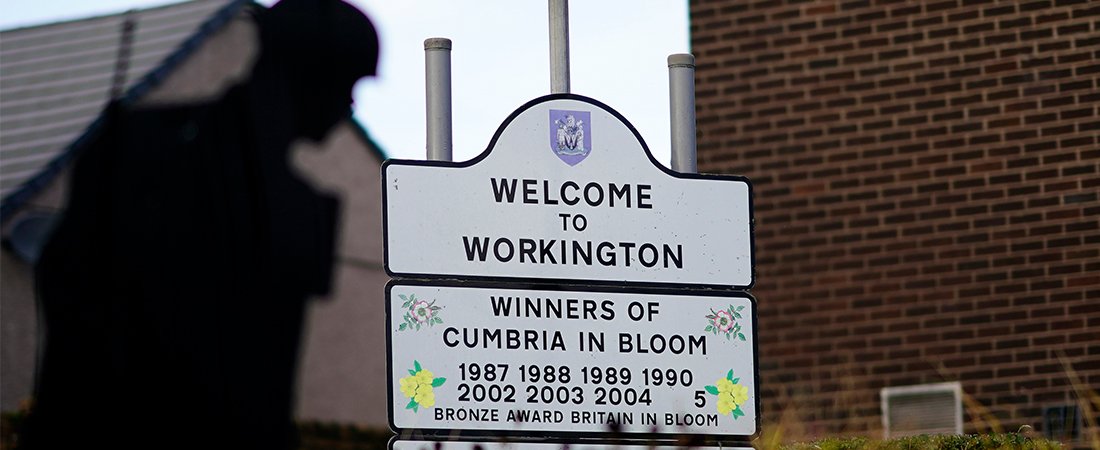On the day following the Conservative’s December 2019 electoral success Boris Johnson, bolstered by a strengthened majority and refreshed mandate, stood a-front the door of No 10. Setting out his intentions for the next five years, he heralded his populist vision of a new “one nation… peoples Government”. Johnson noted his party’s success in bringing MPs from “constituencies that have never returned a Conservative for 100 years”. He promised those of the electorate who had lent his party their vote that the Conservatives’ priorities would be their priorities. Johnson, it seemed, was talking almost directly to those in the newly blue ‘Red Wall’ seats which once made up the backbone of the Labour Parliamentary cohort.
His speech – and more generally the 2019 election – now feel as if they occurred in an entirely distant and obscure time. In a way, they did. The disruption and uncertainty caused by Covid-19 has changed political priorities, and continually shifted Overton Windows. As the turmoil of coronavirus drifts into something of a ‘new normal’, one must question if the Government’s understanding of the proverbial “Workington Man”, and their expressed commitment to him, has waned.
To begin, it’s worth highlighting that the geographical spread of coronavirus, and the resulting restrictions imposed are not shared equally amongst the UK. They are being felt most perniciously by the North. There is concern from new MPs and Councillors alike that the restrictions are doing serious damage to the Conservative Party’s reputation in their newly won seats. This is driven – in part – by feelings of unfairness which the restrictions have engendered . In his recent keynote to the Conservative Party Conference, Johnson admitted that the curbing of “liberties”, being faced by communities via local lockdowns, is “regrettable”. This is a feeling shared by small business owners and members of the public in Greater Manchester, Lancashire, Merseyside, Newcastle and Leeds alike. This comes amid Local Councils and Mayors both requesting more powers to deal with localised outbreaks, coupled with substantial criticism of the central Government’s handling of the crisis.
The disproportionate burden being carried by the North currently lays bare the deeper issues a Conservative Government will have to address if it wants to keep these voters’ support: huge socio-economic and health inequalities across the North-South divide. As expressed by the Mayor of Greater Manchester (and former Health Secretary) Andy Burnham, the virus’ spread in these regions comes not as a result of huggy-Northerners or politically disengaged communities but rather because of systemic and longstanding economic and health inequalities.
It seems almost too obvious to note, but Red Wall voters haven’t previously leaned-left based on the virtue of where they were born. Or indeed, as the Prime Minister has suggested, because of older generations “whispering in the ears” of the electorate whilst they cast their vote. Instead, they have entered polling booths minded with economic and political realities faced by their underserved communities. Covid-19, and the continuing economic consequences that follow, will further accentuate and deepen these exact divides the voters were hoping Boris Johnson would fix, a fact that will likely not go unnoticed by voters if unchallenged by the Government.
Johnson is, admittedly, still relatively early in his term and his party have made significant promises to radically change these Red Wall seats, including through significant infrastructure investment. Therefore, the key question is whether the Government can deliver on its rhetoric. Critics question whether pledges to level up are “White Elephants” rather than earnest and substantial policy efforts to repair and correct inequalities (a warning from a recent Public Administration and Constitutional Affairs Committee report).
With the increased pressure on the Treasury’s coffers, this leads one to question what the future holds for the North – and the viability of Johnson’s promises. This is not an abstract concern merely expressed on opposition benches. Instead it has been pushed by the Government’s own Red Wall MPs through their newly established “Levelling Up Taskforce”.
The Conservative Party isolated and successfully engaged with a long-ignored voter base in 2019. To sideline them once again would be a potentially dangerous political move.
The trust that these voters put in the Government rests not substantially on its ability to deliver on Brexit, nor necessarily in its handling of the ongoing pandemic, but in the material, and everyday aspects of their lives, from cradle to grave. Workington Man may still conceptually exist post-Covid, but the attention and investment this Government pays to him and his community affects will not just the future electoral health of Johnson’s Conservative Party. Instead, and more substantially it will also bring into question the long-term inclusion and prosperity of the forgotten regions he committed to, and is yet to meaningfully, level-up.

